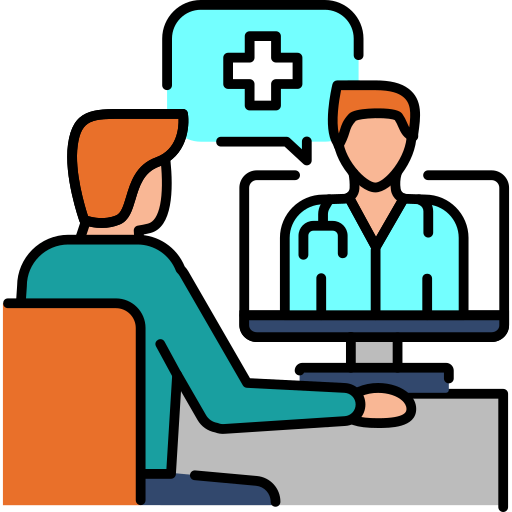Dr Viswanath specializes in the diagnosis and treatment of all types of breast disease, he uses the advanced technology to ensure that the patient receives the highest quality care.

What is Breast Cancer?
Breast cancer happens in your breast tissue. It originates when breast cells mutate (change) and grow out of control, creating a tissue (tumor) in mass. Like other cancers, breast cancer can invade and grow into the tissue surrounding breast. It can also move to other parts of body and form new tumors. When this occurs, it’s called metastasis
What are the symptoms of Breast Cancer?
Symptoms of breast cancer are:
• A breast lump or thickening that feels different from the tissue surrounding
• Change in the breast size, shape or appearance
• Changes to the skin over the breast
• Inverted nipple
• Peeling, scaling, crusting or flaking of the area pigmented of skin surrounding the nipple (areola) or breast skin
• Redness or pitting of the skin over your breast, like the orange skin
What is the main cause of Breast Cancer?
Breast cancer occurs when abnormal cells divide and multiply in your breast. But doctors don’t know exactly what causes this process to begin in the first place.
However, research indicates that are several reasons that may increase your chances of developing breast cancer. These are:
• Age: Being 55 or older increases your chances for breast cancer.
• Sex: Women are much more likely to occur breast cancer than men.
• Family history and genetics: If you have parents, siblings, children or other close relatives who’ve been examined with breast cancer, you’re more likely to develop the disease at some point in your life.
• Smoking: Tobacco use has been linked to many different cancer types, including breast cancer.
• Use of Alcohol: Research shows that drinking alcohol can increase your risk for certain types of breast cancer.
• Obesity: Having obesity can increase your breast cancer risk and breast cancer recurrence.
• Radiation exposure: If you’ve had prior radiation therapy —to your head, neck or chest — you’re more likely to occur breast cancer.
• Hormone replacement therapy: People who use hormone replacement therapy (HRT) have a higher risk of being examined with breast cancer.
What are the possible issues of Breast Cancer?
Breast cancer is the second-leading cause of death in cancer women, after lung cancer. It’s also the leading risk of cancer death among women ages 35 to 54.
How is Breast Cancer examined?
Your doctor will perform a breast examination and ask about your family history, medical history and any existing symptoms. Your doctor will also recommend tests to check for breast abnormalities. These tests are:
• Mammogram: These special X-ray images can detect breast changes or abnormal growths. A mammogram is commonly used in prevention of breast cancer.
• Ultrasonography: This uses sound waves to take pictures of the tissues inside of your breast. It’s used to help examine breast lumps or abnormalities.
• Positron emission tomography (PET) scanning: A PET scan uses special dyes to highlight areas which are suspicious.
• Magnetic resonance imaging (MRI): This uses magnets and radio waves to produce clear, detailed images of the structures inside of your breast.
What is the best treatment recommended for Breast Cancer?
There are a lot of breast cancer treatment options, including surgery, chemotherapy, radiation therapy, hormone therapy, immunotherapy and targeted drug therapy.
Your doctor will tailor your treatment plan according to your unique needs. It’s not uncommon to get a combination of different treatments, too.
Breast cancer surgery
Breast cancer surgery involves removal of the cancerous portion of your breast and an area of normal tissue surrounding the tumor. There are different types of surgery depending on your situation, such as:
• Lumpectomy: Lumpectomy (lum-PEK-tuh-me) is surgery for removing of cancer or other abnormal tissue from your breast.
• Mastectomy: A mastectomy is surgery for removing all breast tissue from a breast as a way to treat or prevent breast cancer. For those with early-stage breast cancer, a mastectomy may be one of the best treatment option.
• Sentinel node biopsy: Early detectiing of breast cancer has resulted in the lymph nodes being negative (for cancer) in most cases, the sentinel node biopsy was occurred to prevent the unnecessary removal of large numbers of lymph nodes that aren’t involved by the cancer.
• Axillary lymph node dissection: If multiple nodes of lymph are involved by the cancer, an axillary lymph node dissection may be done to remove them. This is removal of many of the lymph nodes under your arm (your axilla).
• Modified radical mastectomy: During this process, your entire breast is removed in addition to your nipple.
• Radiation therapy for breast cancer: Radiation therapy for breast cancer uses high-energy X-rays, protons or other particles for killing cancer cells. Rapidly growing cells, such as cancer cells, are more susceptible to the effects of therapy of radiation than are normal cells.
• Hormone therapy for breast cancer: Hormone therapy for breast cancer is for treating breast cancers that are sensitive to hormones. Hormone therapy for breast cancer work by blocking hormones from attaching to receptors on cancer cells or by reducing the body's production of hormones. Hormone therapy is only used for treating breast cancers that are found to have receptors for the naturally occurring hormones estrogen or progesterone.
• Immunotherapy for breast cancer: Immunotherapy medicines use the power of your body’s immune system to attack cells of cancer.
• Targeted drug therapy for breast cancer: Targeted drug therapy is a type of cancer treatment that uses drugs or other substances to precisely identify and attack certain types of cells of cancer.
What will happen if Breast Cancer is not treated?
If breast cancer is not treated universally becomes a fatal disease. It can happen over long periods of time, but if you don't have surgery it doesn't go away on its own.
How can I decrease risk of getting Breast Cancer?
• Get routine mammograms: Having a baseline mammogram at age 35, and a screening mammogram every year after age of 40.• Diagnose your breasts every month after age 20: You’ll become familiar with the breast contours and feel of your breasts and will be more changes alert.
• Have your breasts examined by a doctor at least once every three years after age 20, and every year after age 40. Clinical exams of breast can detect lumps that mammograms may not find.
When should I see my doctor for Breast Cancer?
In addition to having routine checkups and mammograms, you should call your doctor if you notice any breast changes.



 Doctor Consultation
Doctor Consultation video Consultation
video Consultation 9880822174
9880822174